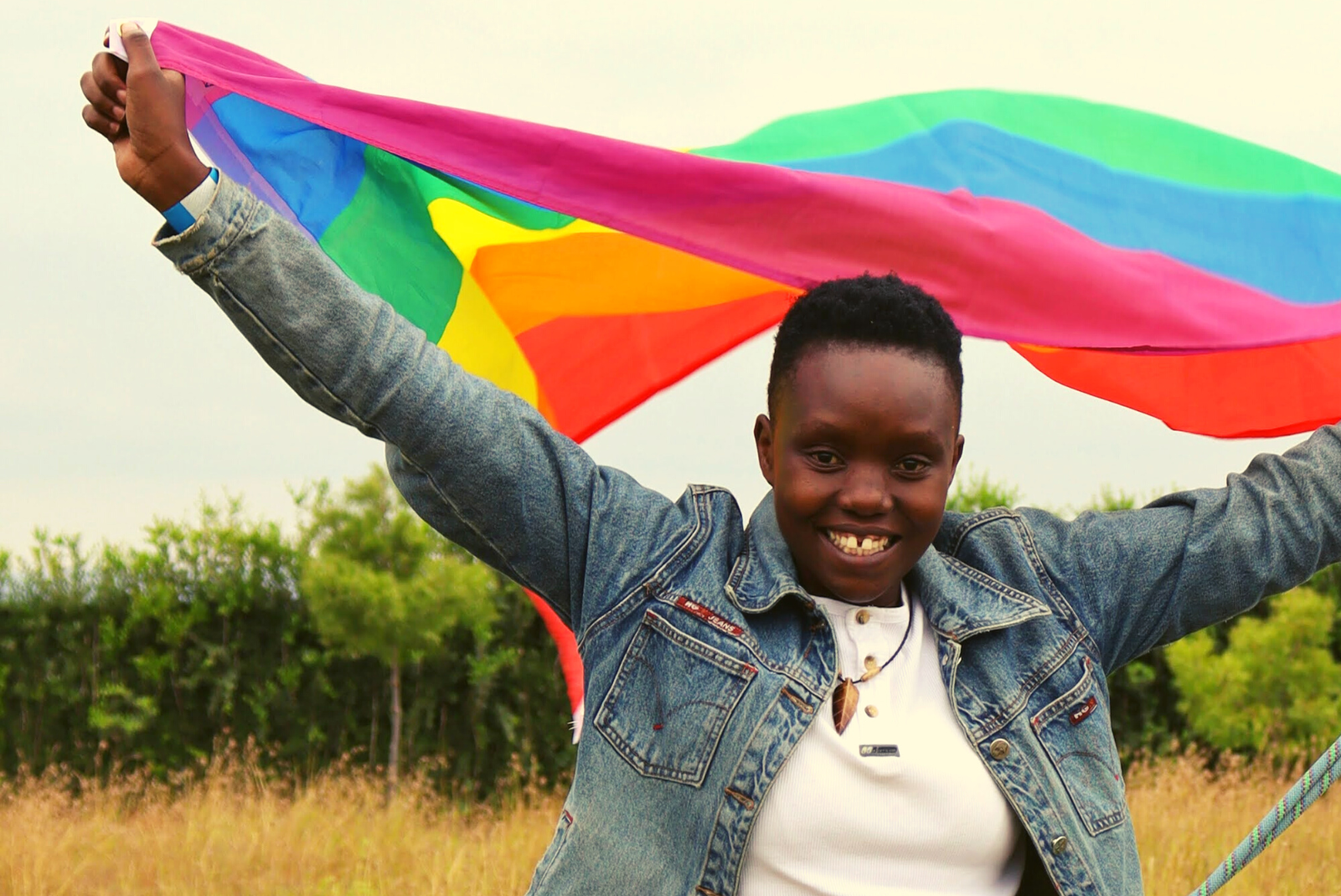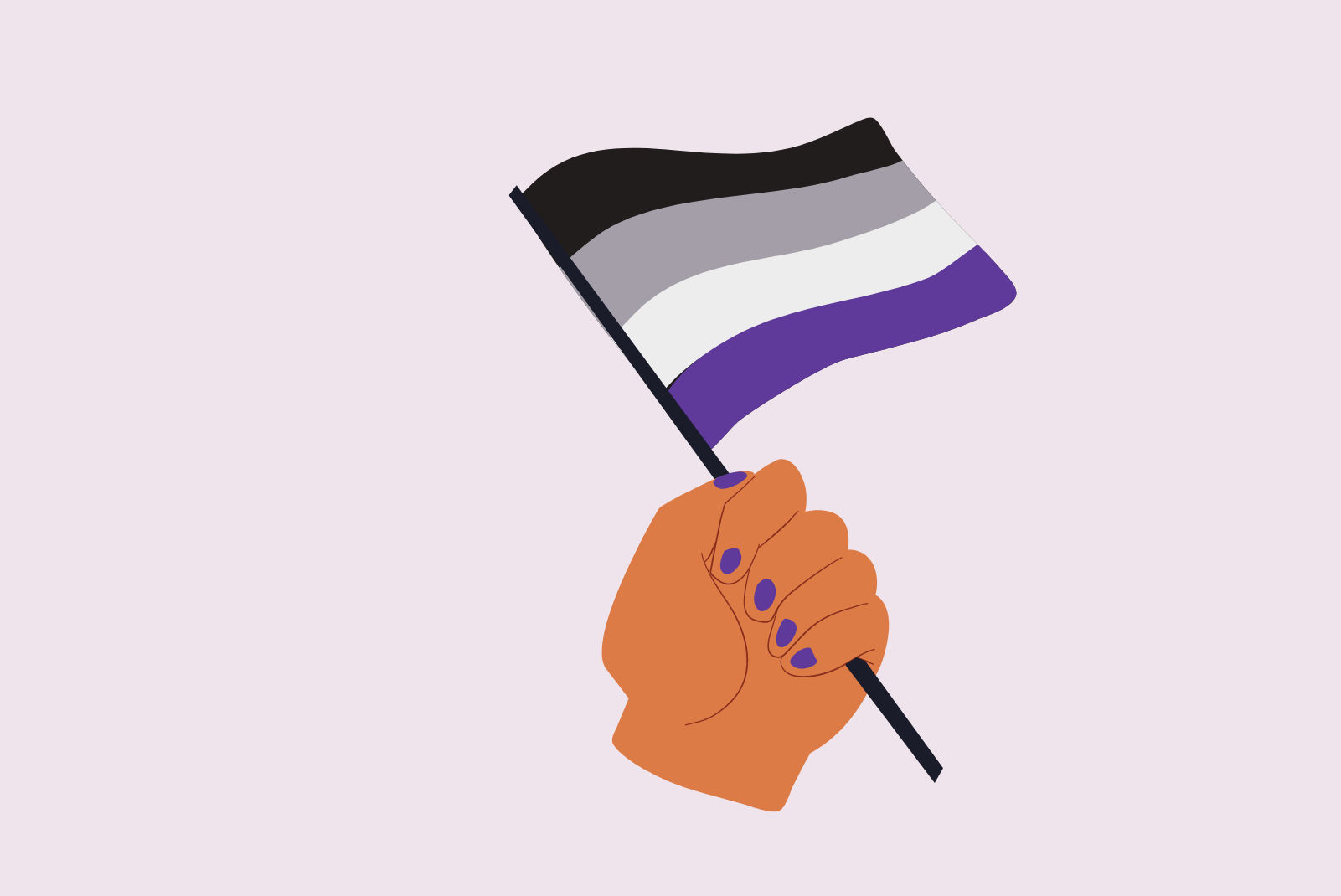
Articles by LGBTI+

Pride 2022: Fahe Kerubo in the spotlight
Fahe Kerubo is a 29-year-old Youth Health Advocate & LGBTQIA+ activist, who is currently serving as the Youth Committee Chairperson for Reproductive Health Network Kenya. We interviewed them for Pride Month 2022: How do you celebrate Pride Month and what does it mean to you? Pride Month is a time for me to reflect deeper on what it means to be queer, what it means to be masculine presenting, and what it means to live an authentic life, especially in this era. It is a time for celebration, to re-evaluate, and to remember the lives we have lost and the battles we have to go through for being authentically “us”. What was it like for you growing up in Kenya as part of the LGBTQIA+ community? Growing up in Kenya as a queer, non-binary, masculine-presenting person was a constant battle with the world, for them to see me beyond my sexual orientation and my gender identity. I am misgendered every day and it is expected of me to suck it up, deal with my feelings, and be okay with that. Here, privilege dictates your sense of dignity, autonomy, and power to decide for yourself. For a queer person from the slums of Kenya – me being one of them – privilege is not something afforded to them. I grew up constantly listening and heeding to voices telling me what to do, how to dress, how and when to speak. So many voices saying “do this and that” – so many voices but my own. Thanks to education and the humanitarian spaces, I am getting to learn that I can decide for myself whether to be in a relationship or not and with whom. Learning that nobody can decide for me but myself is the greatest gift life has given me, and that alone has given me power to rise above stigma, and most importantly, use my voice in advocating for the prioritization of queer SRHR. Why is it important to include LGBTQIA+ issues in sexual and reproductive health and rights (SRHR)? The prioritization of queer SRHR issues is very important because the LGBTQIA+ community is not openly spoken about, especially in mainstream discourses, while on the ground these are lives that are constantly at risk and very vulnerable. The criminalization of our community itself has put us at a risk of acquiring STIs and HIV. Rates of unsafe abortions are also high in the community, and victims of violence are underreported. This is a community with needs that must be addressed. Within the workplace, what steps can be taken to promote a positive and healthy environment for colleagues who identify as LGBTQIA+? 1. Take LGBTQIA+ discrimination seriously – establish a strong anti-discrimination policy to be followed by all staff 2. Foster a gender-neutral environment – such as establishing unisex toilets and using gender-neutral language 3. Provide training, mentoring, and support programs to LGBTQIA+ staff 4. Support LGBTQIA+ events or be part of them 5. Create networks – LGBTQIA+ employee networks can be very powerful ways for colleagues to come together and share experiences And finally, who or what is your LGBTQIA+ hero and why? Nena Na Binti Hotline offered the LGBTQIA+ community sexual and reproductive health services (including safe abortion care) during the COVID-19 pandemic, and continues to do so. They even offered services to members of the community who didn't have money to pay. I know what it means to want to terminate an unwanted pregnancy and not have money to pay for a safe service. A constant battle we deal with is the high cost of health services, which is one of the reasons we avoid seeking care. All the queer people I referred to Nena Na Binti Hotline have been served and we live to tell a happy tale. How can they not be my hero this Pride Month?

What is asexuality? And other questions answered
Every year, 6 April marks International Asexuality Day – so join us as we explore what asexuality is and what it isn’t, and how we can be an ally to people who identify as asexual. What is asexuality? Asexuality is a sexual orientation and a spectrum. Definitions of asexuality vary, but it generally refers to a person who desires zero or little sexual contact with other people. Asexuality is an umbrella terms which reflects a broad diversity in people’s experiences of sexual attraction and arousal, and desires for relationships. People who identify with asexuality sometimes refer to themselves as being “ace” or part of the “ace community”. It is also the “A” in LGBTQIA+. Other terms under the asexuality umbrella include: grey-asexual/graysexual – this refers to a person who may experience sexual attraction very rarely or only under specific circumstances. demisexual – a person who only experiences sexual attraction after developing a strong emotional bond with someone. So asexual people never have sex? Not necessarily – an asexual person might choose to engage in sexual activity, including sex with people or masturbation. They may also experience arousal and orgasm. Do asexual people have romantic relationships? Yes, many do – they may experience falling in love, and they might choose to get married and have children too. Asexuality does not mean a person doesn’t desire emotionally intimate or romantic relationships. However, for those who don’t, they might identify with the terms “aromantic” (someone who does not experience romantic attraction), “greyromantic” (someone who very rarely experiences romantic attraction) or “demiromantic” (someone who is only romantically attracted to those they’ve emotionally bonded with first). Being asexual and aromantic/grayromantic/demiromantic are not mutually exclusive – it’s all down to the individual! What’s the difference between asexuality and celibacy? Celibacy refers to a person who voluntarily chooses not to engage in sexual activity, despite the fact they may feel sexual desires. They will typically commit to celibacy for an extended period of time, sometimes their whole life. It is also not the same as abstinence, which again, is a choice to not engage with sexual activity but usually for a more limited period of time, and similarly has nothing to do with sexual desire/attraction. Conversely, asexuality is not a choice, in the same way that being heterosexual, gay, lesbian, bisexual, etc. is not a choice. Is asexuality the same as a loss of libido? No, a loss of libido may happen for a wide range of reasons, including medical, psychological, and age. If you previously experienced sexual desire but no longer do to the same extent or not at all, and it’s something that you are worried about, then consider speaking to a health professional or counsellor. How can I support asexual people? Asexuality is frequently misunderstood, and sometimes even dismissed – here’s how you can by an ally to asexual people: Believe people when they say they are asexual. Educate yourself on asexuality, as well as other identities. Do not tell asexual people that they are “going through a phase”, or that they “just haven’t met the right person yet” – this is a lazy and offensive stereotype and it’s just false. Not everyone needs sex or relationships to be happy. Some societies assume that all people are sexual, but this is simply not true – so challenge this assertion when you can. Do not quiz a person on their asexuality (or any other identity) – people will offer information if and when they choose to. It’s no one else’s business but their own!

Statement on the Guatemalan law on 'Protection of the Life and the Family'
On International Women's Day 2022, Guatemala's Congress passed a law which triples the prison sentences for women seeking abortion care, prohibits same-sex marriage and further bans the teaching of comprehensive sexuality education and sexual diversity in schools, saying that teaching "anything other than heterosexuality is normal" is against the law. The "Life and Family Protection Law" was passed by an overwhelming majority of 160 - 8 in the conservative-led Congress, but still needs to be signed by Guatemala's president, Alejandro Giammattei, in order to come into force. Under the new law, women who "have induced their own abortion or given their consent to another person to carry it out" will face a minimum of five years in jail, but the sentences could reach a maximum of 25 years. Abortion is illegal in Guatemala except in cases where the woman's life is at risk. This law is the latest of a series of laws to attack human rights across the country, including gender equality and sexual and reproductive health and rights. The initiative goes against human rights agreements, especially for women and LGBTI+ people and condemns and denies the diversity of families including mono-parental homes. Eugenia Lopez Uribe, IPPF's Regional Director for Americas and the Caribbean Region, said: "It is disturbing that on International Women's Day 2022, the Guatemalan Congress passed a law that completely violates the human, sexual and reproductive rights of women, girls and marginalized people. "While countries across Latin America were celebrating the lives and rights of women, Guatemala has chosen to criminalize those making the best decision for themselves and their families, while also risking imprisoning vulnerable women and girls who have experienced sexual violence or suffered pregnancy loss. By severely limiting access to safe and post-abortion care, the law will undoubtedly lead to an increase in unsafe abortions and a decrease in prenatal care, resulting in life-long disabilities for some women and a rise in maternal deaths. "At the same time, by prohibiting same-sex marriage, limiting comprehensive sexuality education and enabling the discrimination of sexual diversity, the Guatemalan government is creating a society that fosters miseducation, stigma, intolerance and homophobia and fuelling the persecution of LGBTI and non-binary people. "IPPF strongly condemns the passing of this archaic law and demands that the Guatemalan government fulfils international human rights agreements. We stand in solidarity with affected people across Guatemala and the organizations working tirelessly to ensure that all people have the freedom to make their own choices." For media enquiries, please contact Karmen Ivey on [email protected] or [email protected]
Pagination
- Previous page
- Page 3







